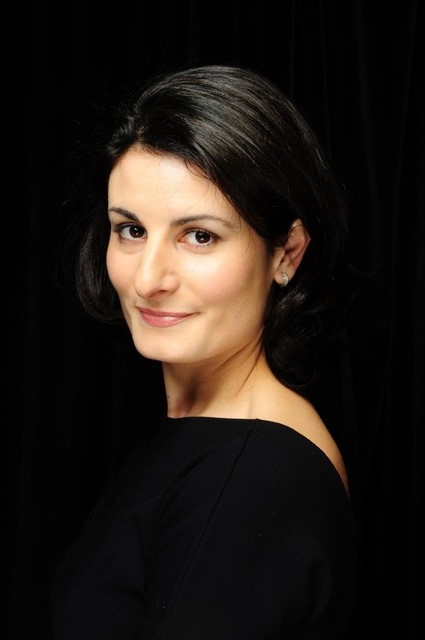Lana Asfour is a journalist whose articles and photographs have been published in the Times, BBC online, the Observer, the New Statesman, the Daily Star Beirut, Al Jazeera English, OpenDemocracy, Granta, the New York Review of Books blog, Counterpunch, the London Magazine, Executive magazine, Al-Araby English, and Glamour magazine.
She writes foreign news, analysis, opinion pieces, features and arts reviews, and has been named one of Granta’s “New Voices” in its Emerging Writers series. She is the author of Laurence Sterne in France (2008), which was well reviewed by the Times Literary Supplement and other journals.
Before journalism, she taught at Queen Mary, University of London and at the Open University. She did her Ph.D. in English and French Literature at Oxford University, spending time as a visiting researcher at the École Normale Supérieure in Paris, and has a Masters in Middle East Politics from SOAS.

An interview in Granta Online, 19th June 2008 [Read here…]
Lana Asfour & Roy Robins
Every two weeks we will be showcasing original fiction from an emerging writer, as part of our New Voices feature. The third in our series is Reconstruction. Its author, Lana Asfour, speaks to Roy Robins.
RR: Where are you from?
LA: I was born in Beirut and grew up in London.
When did you start writing? And why?
I started writing early on, and I’m sure that my early experience of cultural difference was defining and motivating.
‘Reconstruction’ is about Maya, a young Lebanese-born architect who, in the months before 9/11, returns to Beirut, and her complicated relationship with her British boyfriend, Alex. What makes ‘Reconstruction’ remarkable is how Maya’s story is used to explore a broader, more ambitious narrative: the story of a city, forever changing, of identity and uncertainty and the ways in which cultures converge. What was the germ of ‘Reconstruction’?
Loss, memory and reconstruction have been present in my thoughts ever since I can remember. These took shape in the particular setting of ‘Reconstruction’ when I was working as a journalist in Lebanon during the post-civil-war reconstruction period. I spent a lot of time walking around, looking at buildings and talking to architects who were doing very exciting work. Lebanon’s beauty and grace seemed to me to lie in its rebirth – in the constant change and renewal that was occurring everywhere around me – precisely because I was also looking at the vestiges of past civilisations and at the horrific signs of violence, destruction and neglect in the cities and landscape, which I didn’t think should be forgotten in the reconstruction process.
More than anything, the story seems to be about how politics (both domestic and global) intrudes upon everyday life. For instance, the building upon which Maya works can be seen as a metaphor for Beirut. Was it a conscious decision on your part to make Maya’s story mirror these larger issues?
Yes. In many parts of the world everyday life and relationships are inseparable from the wider political situation – in Iraq and Palestine, for example. In Lebanon, people can ignore politics to a certain degree in order to live normally, but at some level their lives remain fluid, uncertain and adaptable to the situation at hand. People have seen far too much conflict in recent history not to be wary even in times of peace. The stability of the reconstruction years of the 1990s may have encouraged many to believe that things could only progress, despite inherent faults in the system, but the Israeli war of 2006 shattered this idea. ‘Reconstruction’ does also look beyond contemporary politics. The eastern Mediterranean is the meeting point of so many ancient and modern cultures and civilisations, and because of this there is a deeply ingrained cosmopolitanism which survives conflict and the vacillations of particular political regimes (though these can unfortunately also erode it). People of different religions and ethnicities have lived side by side for millennia in the Middle East, sometimes at war but more often peacefully, and this kind of historical experience – in which tolerance overwhelmingly has been the standard – can and should stand up to those who hold simplistic assumptions about the Arab world, and to those who wish cynically to control or conquer it.
You write especially well about landscape.
I like to evoke a sense of place – it’s also important if architecture is a theme. I’m currently working on a novel in which a sense of place is central, though I’m restricting descriptions of landscape to what’s significant for the action of the novel as a whole.
You are an academic and also a journalist. Do either of these disciplines aid the discipline of writing fiction?
Academia has certainly encouraged me to be disciplined and exacting, and my work on the eighteenth-century novel must have had some impact on my ideas about representation. Journalism opened up the wider world and gave me the opportunity to write more accessibly. Fictional writing benefits from these other forms, and each type of writing provides a welcome change that helps the others, keeping them fresh and relevant. I do find in fiction the greatest freedom and therefore the greatest potential meaning.